
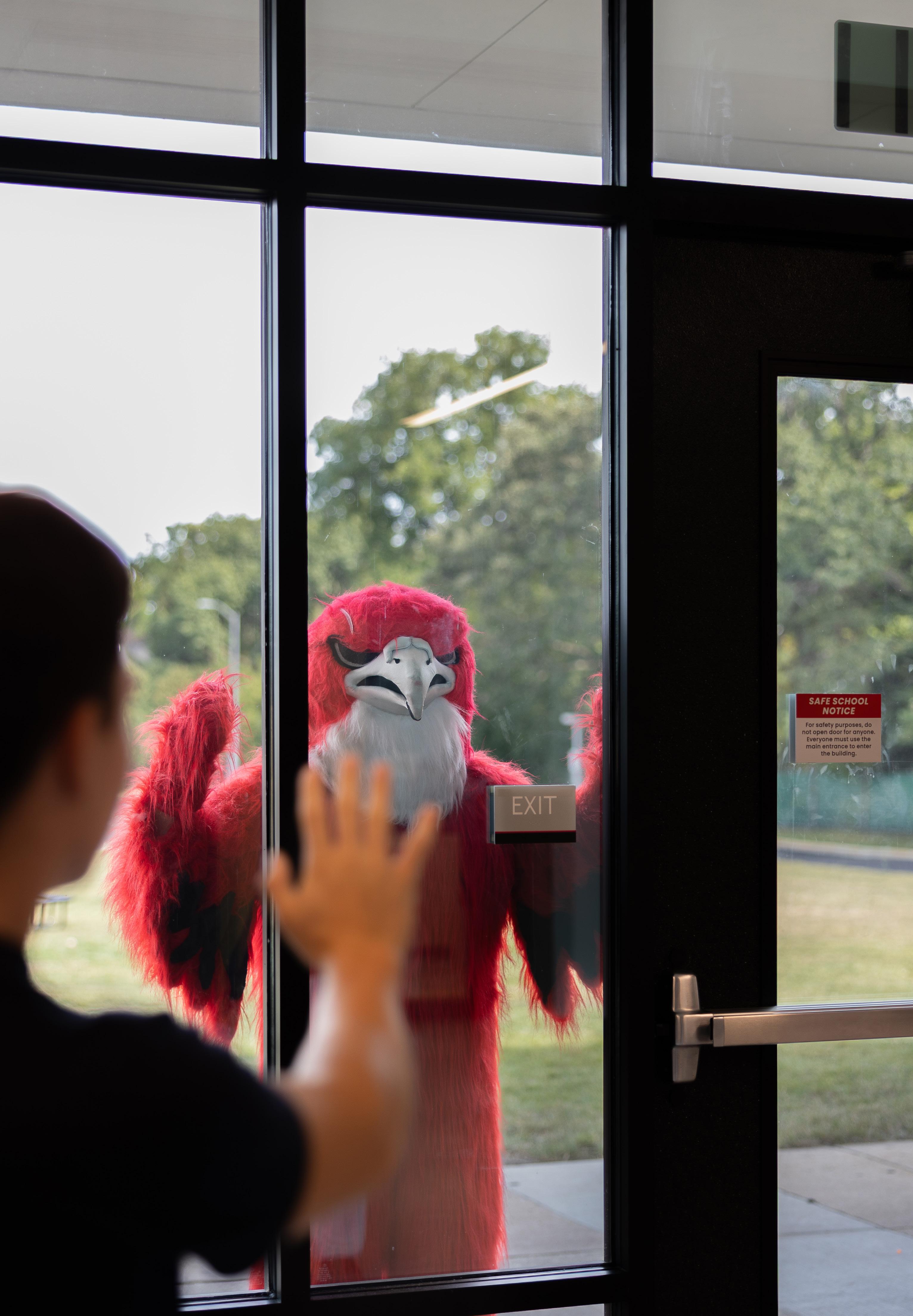



Julia Pertsak News Writer
In response to feedback from staff and students, District 207 has reduced advisory days from nearly every week to a total of 14 for the entire year.
“The district is really focused on looking deep into the practices that exist, and gathering a lot of data on what is working and what is not working,” Principal Dr. Antwan Babakhani said. “When looking at advisory, some pieces are necessary, and then you have lessons which are supposed to promote things like socialemotional growth.”
Seeing your advisory group once a week and then having to talk about topics-such as social-emotional growth was found not to be as effective as hoped.
“It makes the conversations seem disingenuous, and doesn’t seem effective for both teachers and students,” Dr. Babakahani said.
Currently, there is an ongoing effort to improve the efficiency of advisory and focus more on specific topics.
“The district is trying to reduce advisories by around 50%, and really just focus on specific things, such as college and career components that involve the counselors, school safety training—including drills like the tornado drill,” Dr. Babakhani said.
Programs such as Hawk PRIDE are closely connected with advisories and play a vital role in their opera-
tion each week.
“Hawk PRIDE has a long history at Maine South — it has adapted and changed structure many times,” Hawk PRIDE co-sponsor Mr. Michael Biondo said. “With there being fewer advisories now, it allows us to look at the whole broad history of 25 plus years of Hawk PRIDE existing and bring some stuff back — stuff like finding freshmen and helping them in their study halls that is different from what we do in advisory.”
Despite there being fewer advisories this year, there are still activities that were previously done in advisory that will continue.
“We are excited to continue to utilize advisory and be a part of advisory when those opportunities come up,” Hawk PRIDE co-sponsor Ms. Alexis Liakakos said. “It’s exciting to bring Hawk PRIDE back to its roots with opportunities that exist outside of advisory.”
Additionally, many new programs that can’t be done in advisory will be run outside of those sessions.
“We [ran] this HOCO 101 session, where we [had] an attire station, poster making, treat station, and tips on how to navigate the week and the dance,” Mr. Biondo said.
The usage of advisories will now concentrate on more academic topics rather than social-emotional learning topics.
“It helps with the promotion of college and career opportunities for

discussions and gives counselors an avenue to see their caseload at scale,”
Dr. Babakhani said. “It is an opportunity to conduct really important drills in the school, including ALICE drills, and an opportunity to disseminate critical information to our students.”
Students have noted that this reduction in advisories is a positive change.
“I think advisory is a lot better now,” sophomore Lena Henning said. “Going there every week felt
super unnecessary. It’s better to have them less often. Now, more information is given out at once and that feels much more cohesive.”
While some students find benefits in having fewer advisories, some still found good in the original arrangement.
“It’s sometimes nice to have that break during the day,” sophomore Fatma Osbudak said. “Depending on how you feel about your advisory, your opinion could swing either way.”
Alexandra Lobo News Writer
Starting this year, District 207 has changed the Physical Education exemption process. Underclassmen are no longer able to receive exemption from P.E. due to participation in interscholastic or school-sponsored athletics. This policy also applies to underclassmen on varsity sports.
“[This change] had to do with the district complying with state standards,” Athletic Director Mr. Matt Ryder said.
However, for upperclassmen, the policy remains the same. Subject to their coaches’ allowance, they are able to be exempt from P.E. at the beginning of their athletic season and return to P.E. at the set end date of their season.
Despite the change, athletes have continued to maintain dedication to their sports, with or without a P.E. exemption.
“I don’t know if [the new policy] has affected participation yet,” girls’ cross country & track coach Mr. Jeff Downing said. “I haven’t heard of any girls choosing to not come out because they couldn’t get an exemption.”
hall, whether you’re a freshman or senior — but there’s also a great benefit in kids participating in P.E. classes, even when involved in sports,” Mr. Ryder said.

“There are definitely benefits to having more opportunities to a study hall...But there’s also a great benefit in kids participating in P.E. classes.”
Without a P.E. exemption, freshman no longer have access to an additional study period during their athletic seasons.
“There are definitely benefits to having more opportunities to a study
This new change in exemptions has not impacted P.E. exemptions due to injuries or health-related issues. If a note from a doctor is received by the school, a student is able to sit out of P.E., per the doctor’s request.
Additionally, this new change has not impacted the policy surrounding exemption from P.E. for the marching band students during the marching season.
Students participating in marching band are still able to be exempt from in-school P.E. and Virtual P.E. at the start of their season and return to P.E. at the set end date of their season. This applies to both underclassmen and upperclassmen who are enrolled as band members.
“They offer marching band exemptions because of a combination of the physical demands of the class that the students are meeting, plus the co-curricular aspects of marching band,” band director Dave Hutter said. “So, it helps balance the time because there are so many outsideof-school commitments that are required. Giving some time to have a study hall during the day helps balance things out.”
Jennifer Antonov & Rose Hassman News Writer & News Editor
As part of a multi-year security plan, Maine
South is implementing a new security alarm system to ensure student and staff safety. This new alarm system will be activated on Tuesday, Oct. 14.
“In the past, and even up to today, we have 60-plus doors that you can get out of,” Principal Dr. Antwan Babakhani said. “That includes maintenance doors and the doors as students you’re familiar with. Any door can be opened at any time, and that’s a huge security risk.”
With so many building access points, it is difficult to control who is entering the building.
“The other problem is that there are students who, in fact, have been opening doors for other students to come in,” Dr. Babakhani said. “There could be situations where a student allows an outside intruder to come in innocently. As you know, you can easily let in the wrong person, and that’s a big red flag.”
In order to address these potential safety concerns, a series of security precautions have been implemented going forward to prevent unauthorized doors from being opened during the school day.
“As soon as you open a door, an alarm goes off, your picture gets taken, and that picture gets sent to a lot of people,” Dr. Babakhani said. “Everybody who’s anybody from an importance lens will see it and address it appropriately.”
While the rules regarding which doors can be opened during what times are strict for safety reasons, exceptions and further changes are still being made.
“Doors such as 20 [HPL] and 43 [spec gym] have people constantly coming through them in the morning, and as a result, we have to be careful about making sure that certain doors have windows of

time where the alarms won’t go off,” Dr. Babakhani said. “Between 6 and 7 a.m., these doors are turned off [for morning practice].”
Much like the entry doors in the morning, other doors may also have exceptions to the times they’re alarmed throughout the school day.
“Door nine is the entry to the student parking lot and is commonly used by juniors and seniors for open-campus lunch between 11:17 a.m. and 1:44 p.m., and therefore won’t be alarmed but monitored by security to ensure everyone’s safety,” Dr. Babakhani said.
Besides minor exceptions being made for open campus lunches and before and after school activities, the strict enforcement of the security alarms still applies to the rest of the doors throughout the school.
“A high school is ultimately a government building,” Dr. Babakhani said. “For example, if you
went to Lutheran General right now, there are only two ways to get in: the main entry or the emergency room entrance. There is no, ‘I parked over there. Can I get in this way?’”
The focus of the alarm system is to promote a safe school environment.
“We are trying to get it out of people’s heads that the school grounds are an open free-for-all where anyone can use any door based on convenience over safety,” Dr. Babakhani said.
Though these changes require flexibility on the students’ part, students understand their importance.
“I think the security alarms being on during the day is a good addition for safety reasons,” sophomore Syd Spychalski said. “Because the alarms are turned off after school when I’m leaving, I don’t think the strict enforcement of the alarms are a big deal.”
Luke Compton News Writer
Over the past few years, District 207 has been experimenting with a new standards-based learning and grading model in classes such as English, math, and music. While the district will continue to emphasize standards-based learning, the standards-based grading is now being phased out.
“Last year, the District Administrative Team interviewed every course team in each building to identify how we could help teachers do their jobs more effectively,” Dr. Shawn Messmer, Assistant Superintendent for Curriculum and Innovation, said. “Almost every course team identified the standards-based gradebook as a challenge. The district then decided that we would move to the regular
gradebook and maintain standardsbased learning, and take away the challenges of the standards-based gradebook.”
This change not only impacts how teachers will grade, but it also affects how students will view their grades.
“This also means that every student will see the same type of gradebook in Infinite Campus to eliminate any confusion and establish consistency,” Dr. Messmer said.
Standards-based learning is not entirely gone, though.
“Teachers can still do standardsbased learning and reflect it in the regular gradebook on the 100-point scale,” Dr. Messmer said.
Teachers found that the standardsbased grading system required teachers to deviate from the grading style they were used to, presenting an obstacle.
“I would say when you’re used to grading things a specific way for over a decade and then you’re asked to change how you’re grading things, obviously that poses a challenge,” broadcasting teacher Mr. Mason Strom said. “It was kind of nice to revisit rubrics and update them, but it’s a little challenging to convert them and start to think in this 4-3-2-1 mindset now.”
Students also faced difficulties, finding that the standards-based grading ended up doing more harm than good to their grades.
“A big challenge that I faced as a student under standards-based grading was the way that the summatives were counted,” senior Campbell Foster said. “In my French class, it was only the past three summatives you took that counted towards my grade. That was a very, very stressful situation because I was putting in an
effort, and I was doing better, but my grade was actually decreasing because [early good grades were dropped].”
Teachers observed a pattern of students not valuing their formative work due to the system. The standards-based grading system only counts summative work towards a student’s grade, so any formative assignments have no impact on grades.
“I could update [the gradebook] with formatives, but since it had no clear effect on the grade, it didn’t seem to anybody to be like, ‘Oh, I’m missing this assignment. I should turn this in’,” Strom said.
Overall, students and teachers are enjoying the return to the traditional 100-point grading scale.
“I’m happy to move back,” Strom said. “I think part of it’s the comfort. But overall, I just find it easier, and I think class runs better.”
Lucia Fuentes News Writer
In the years since COVID, District 207 has seen a rise in chronic absenteeism. In order to combat this issue the school has developed new attendance policies to encourage students to be present and on time.
Chronic absenteeism refers to students who are missing 10% or more of school during the academic year. The rise in chronic absenteeism has caused issues across the country.
“According to the Illinois State Report Card, chronic absenteeism is around 30% district-wide and affects all three district schools (Maine West, Maine East, and Maine South), even though percentages differ amongst all three schools,” Director of Student Services Ms. Kyleen Coia said.
Due to the widespread issue, the district has implemented consistent expectations, communications, and support for students through their new policies. They have done this to guarantee that each school, student, and parent can be on the same page.
One of the new attendance policies is the Clear Attendance Expectation. This states that students should maintain a 95% attendance rate: no more than two days absent a month, excused or unexcused.
This policy can impact students in a variety of ways, including extracurricular activities and social events such as prom and homecoming.
“The new attendance policy keeps me accountable for showing up to school every day so that I don’t miss out on school events or extracurriculars,” junior Alivia Florentino said.
In order to hold students accountable in District 207, bi-weekly attendance reports are sent out to families so that attendance can be monitored.
These reports include the student’s attendance percentage for each class, tardy patterns, and colored guides indicating what percentage they are present.

This chart shows Maine South’s chronic absenteeism percentages from 2019 to 2024. The percentage of chronic absenteeism is lower in 2020-2021 due to changed attendance procedures, but the increase in the following years is beyond typical prepandemic levels.

When it comes to extracurriculars, coaches will receive these reports daily as well. If one of their athletes has missed half or more of the day, regardless of whether excused or unexcused, they will not be allowed to participate in practice or competition that day.
For upperclassmen, this presents an extra responsibility concerning parking privileges. This year, the district only is allowing students with good attendance to keep their parking privileges.
If students exceed nine excused absences or two unexcused absences, their parking privileges will be revoked or reconsidered.
“Compared to last year, the consequences are too harsh,” senior Yelena Hayes said. “Having a spot is something I’ve looked forward to for the past three years,”
In addition to the social consequences of this new initiative, there are academic responsibilities as well. When a student misses class, they will, in most cases, be expected to complete the makeup work for what they missed. This year, the makeup work policy has been altered to account for missing summatives and formatives in a clearer way. Regardless of whether excused or unexcused, students must complete missed work within the next five school days and summatives on the next day they are in class.
“If an individual struggles with these new protocols, structured interventions may take place,” Ms. Coia said. “This begins to take place at 5, 10, 15, and 20 unexcused absences or excessive tardies. Families will receive formal notifications, and students are required to make up lost time through detentions. This [was] put in place on Sept. 8.”
It has been found that attendance and academic success are positively correlated. The National Center for Education Standards stated that when a student misses a school day, they are also missing out on an opportunity to learn.
The Center addresses this as one of the primary rationales as to why student attendance is linked to academic achievement: “Students who attend school regularly have been shown to
achieve at higher levels than students who do not have regular attendance.”
This relationship between attendance and academic performance has caught the attention of many school districts, including District 207.
These findings have influenced the new attendance policies. This new plan of action is called the Every Day Counts initiative.
The rise in absenteeism has not only become a school-wide concern, but also a district and nationwide issue. Staff and organizations from several different states are trying to find ways to combat this dilemma.
Chronic absenteeism has become the primary issue. This became a commonly used term during and after the COVID-19 pandemic, and still remains as a common problem in schools.
Coia listed the main problems that the school is choosing to focus on.
“Full day absences (excused and unexcused), in-house absences (students in the building opting not to attend class), partial day absences, and tardies—these are a big concern,” Ms. Coia said. “Especially tardy excessives, being more than 10 minutes late to class.”
The worry is not only about being present and on time in high school. The concern began to revolve around students’ post-secondary lives.
If students practiced poor time management skills, this could eventually affect them in their career field in the future. The district kept this in mind when they framed their policies.
“The over-arching goal is to foster consistent attendance habits that help students thrive academically, socially, and personally,” Ms. Coia said. “By setting clear expectations and accountability measures, the district hopes to strengthen longterm outcomes like graduation readiness and post-secondary success.”
The administration has numerous objectives they aim to achieve through the Every Day Counts initiative.
“We hope to ensure students remain connected to their teachers, peers, and school community,” Ms. Coia said.
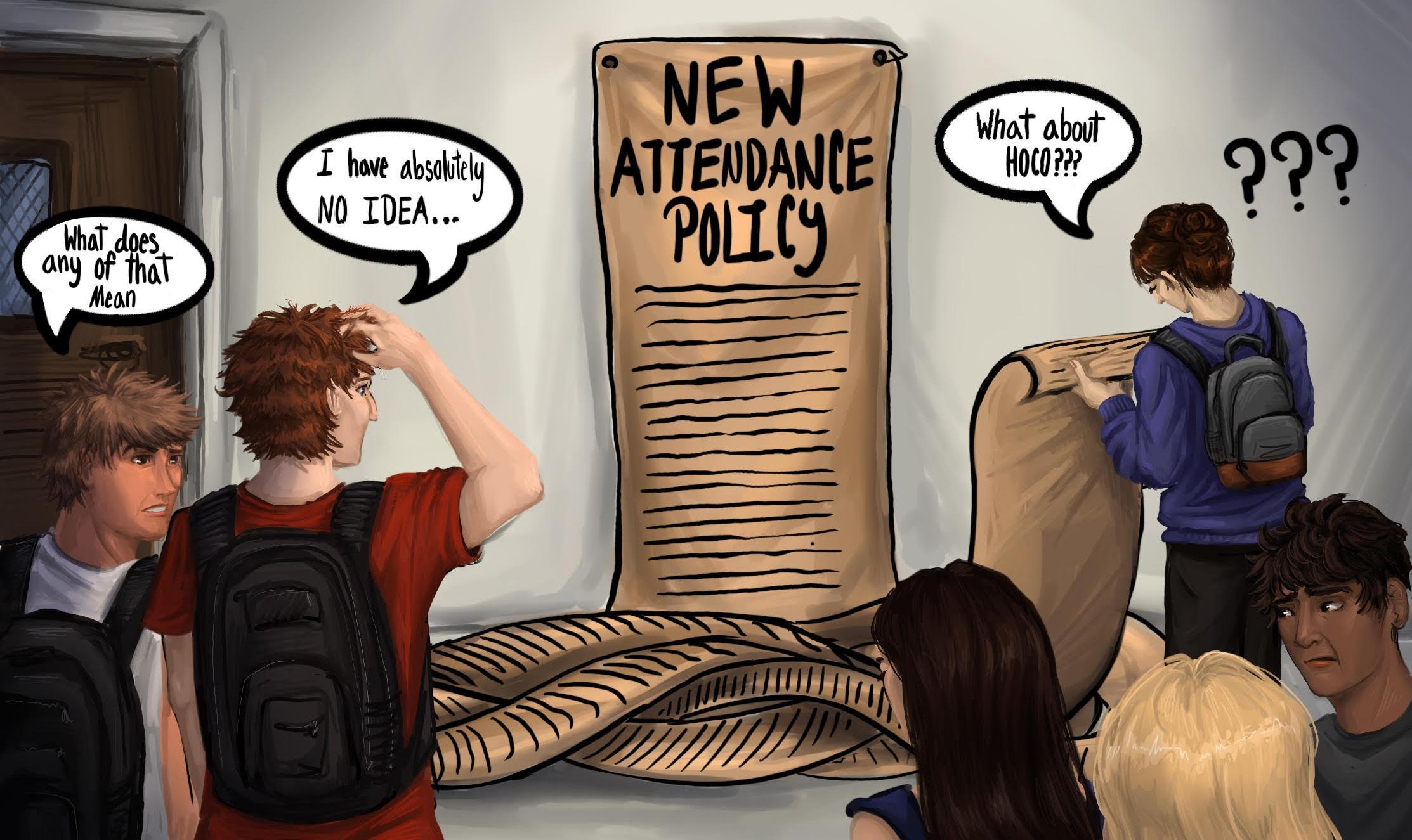
Homecoming, parking spots, senior prom, and open campus lunch: these are the hallmarks of a typical Maine South senior year. However, these things, which many students view as privileges, are now in jeopardy according to the new attendance policies put in place this year.
Coming off the more relaxed nature of the recent school years, this year’s long list of new rules is a stark contrast.
Last year, there were essentially little to no enforced punishments for poor attendance. Now, students must have 90% attendance in order to attend homecoming. Seniors cannot have any unexcused absences or tardies in order to be able to keep their off-campus lunch privileges. Even extracurricular activities can be taken away for the day if you miss two or more class periods.
While Southwords agrees that there should be consequences for chronic absenteeism, it is understandable why there would be culture shock for many students. In practice, this new system has caused confusion among students, many of whom are concerned about its harsh consequences.
In classrooms that are testing out the scan-in system, there have been reports of students being marked tardy because of a glitch in the system. This in turn bars them from an open campus lunch. The strict no-tardy policy doesn’t give room for any error, even if the student is not at fault.
A number of emails have been sent by the administration describ-
ing the new attendance policies, but because of how many regulations and consequences there are, students feel confused between hearsay and email communication. It can be challenging to keep track of what you should be worried about. There should be one place where students can go to refer back to what the rules are, rather than feeling uneasy about getting in trouble. A large portion of the frustration expressed by students is rooted in our uncertainty.
Beyond there being confusion with communication, the students this year feel like the high school experiences that are now put in jeopardy due to the new policies are too important to be taken away so easily.
New attendance guidelines are laid out in detail and explained by administration.
See page 4
For example, nobody in the past had to worry about being denied attendance from homecoming, unless you had serious disciplinary infractions. It’s understandable what the purpose behind these new measures are, but taking away such a cherished event seems too extreme.
Students understand attendance is important, and most agree that consequences are crucial. But, enforcing these strict rules, seemingly with no mercy, on students is bound to incite a negative response.

Maine South High School 1111 South Dee Road
Park Ridge, IL 60068 http://www.southwords.org

Southwords is a student-run publication designed as a public forum for student opinion and balanced reporting on topics relevant to the Maine South community.
Unsigned staff editorials represent the consensus opinion of the Southwords Editorial Board. Personal commentaries represent the opinion of the author alone and do not represent the opinions of the publication nor District 207.
Student participation in the newspaper, whether through readership, submitting articles, or voicing comments or concerns, is encouraged.
There is a better way to alleviate attendance problems: positive reinforcements. One suggestion to positively reinforce good attendance, and even good grades, is to allow students with third or fourth period off to leave the building if their attendance rate and current grades are satisfactory.
This concept mirrors the system that the class of 2026 saw used during their freshman year study halls. If a student had all passing grades in their classes, they were able to utilize the library and commons areas during their study hall rather than being confined to a classroom.
Rewarding students for receiving good grades and attending school with something exciting for students could be very effective in boosting grades and attendance.
It is important to have a high attendance rate because there is a positive correlation between grades and attendance. By providing this type of incentive, the only students that would be able to “skip out” on spending their study hall time doing homework are the ones who already have passing grades and a high attendance rate.
There is no doubt that poor attendance is an issue and deserves consequences. However, the policies presented should be clearly communicated and fair. Students should achieve good attendance because they are driven to succeed, not because they live in fear that the high school moments they look forward to will be taken away.
Signed letters to the editor can be given to a member of the editorial staff or e-mailed to southwords@maine207.org. Southwords reserves the right to edit material for clarity and brevity and to reject obscene/libelous submissions.
Editors-in-Chief
Adviser

Many students have fingers crossed in August as they brace themselves for their long-awaited schedules. One of their biggest worries is getting a teacher with a reputation for having a more challenging class than the other teachers of the same course.
While teachers should have the freedom to teach with methods that call upon their strengths, students shouldn’t have to worry that one teacher’s version of the curriculum is significantly more challenging than another.
Students, especially those enrolled in accelerated and AP courses, rely on study time with peers for success.
Sometimes, students need resources beyond the ARC, so they look to friends for some guidance.
This can be incredibly helpful, and many teachers even encourage you to create study groups and work on assignments with your friends.
More and more, this opportunity is taken away as teachers assign work that others might not assign for weeks to come, or make students study for a test that another class isn’t taking.
In addition, some classes receive
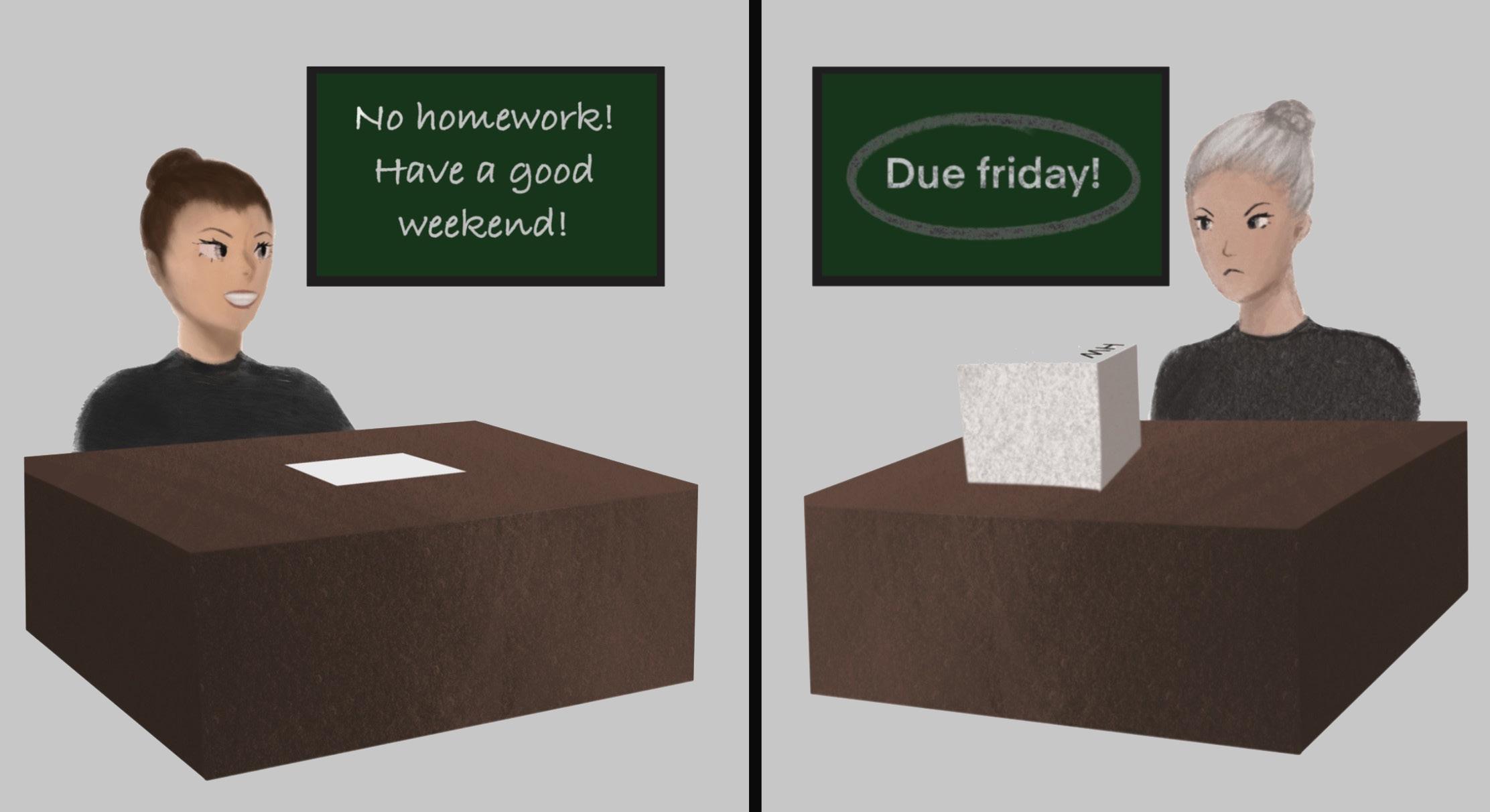
more detailed notes, better study guides, and more stimulating worksheets, while other classes are more lax and fall farther behind in the curriculum.
If a student is hoping to enroll in a course, they should have the comfort of knowing that, no matter the teacher, they will have an equal opportunity at success, learning, and personal enjoyment. Unfortunately, many students question this.
While some teachers give harder quizzes, others allow you to fly by with no struggle. This leaves us with a problem.
Some students are being presented with better opportunities, while oth-
ers are just skimming the surface of their curriculum.
This issue doesn’t lie simply in the hands of individual teachers. It isn’t their fault that a policy has yet to solve this issue.
Instead, there should be a schoolwide push to ensure parity in both the workload and learning among classes. A set schedule of classwork, shared notes, worksheets, and templates may be the key to student success.
If every teacher within a course can present a teaching style that appeals to a variety of students, contribute the same material as other teachers, and effectively enrich the class, then student success would rise
immensely.
Additionally, if there is consistency in the curriculum, study groups would be easier to organize and participate in. This would encourage students to increase their study time.
This could even result in fewer drops from rigorous advanced placement courses, as students know exactly what they are getting into. Instead of hoping for one teacher or another, with efforts to standardize, everyone could have the same expectations for the course ahead.
In the end, what matters most is that all students are encouraged to learn and succeed. Hawks should grow no matter their schedule.

Our whole lives in this district, we’ve been told Maine South is one of the best schools in the country. We’re told to be thankful for the things we have and the resources we rely on. We have numerous support systems that encourage our growth and success. While these things are our everyday norms, to others outside of our situation, they might seem like a dream.
This is something many of us have always known but maybe never fully understood. Think about it — any time students in this community need something, it’s right at our fingertips. Whether it’s help with assignments, counselor as-
sistance, or help at home, our community provides us with everything we need.
This was made clear to me when I met someone who didn’t have these advantages. A young boy, 17 years old, just like you and me. He plays football and has dreams just like us. While my biggest problem is my C in AP Psychology, he doesn’t know where his dinner will be coming from. He wakes up every morning wishing he could attend a school like ours.
When I wake up, I have to drag myself out of bed to get an education. How lucky am I? How lucky are we that we have assignments due at 11:59 p.m.? How lucky are we to have the opportunity to play sports, eat every meal, and go to school every day?
Hearing the stories of teenagers just like us moving from city to city and home to home, hoping to just grasp a feeling of what we have, really changed how I view our lives.
After fully considering my situation, I have a sense of guilt. Why do I get the pleasure of these things, and others don’t? Why is my biggest problem the C in AP Psychology and not where my next
meal is coming from?
We are constantly being reminded to be thankful for what we have and for the community and people around us. But it takes a different perspective to actually understand this luxury. I truly believe a flip was switched in my mind when I heard these stories firsthand.
While it is at times annoying when our guardians tell us to clean our rooms or do our homework, put into perspective, a large majority of teens in our country don’t have this guidance.
I’m not saying it’s not okay to feel overwhelmed, stressed, or pressured by assignments and tests; I’m just saying that the next time we think these things, imagine the ones who would go to hell and back to be in our shoes. So the next time you go to the ARC, or office hours, or to speak to your counselor, say an extra thank you.
Be proud to represent such an amazing school and community, and be thankful for your opportunity to get your C to an A. Remember, our complaints are someone else’s dream.

Change is hard for everyone. It’s not in human nature, especially when it is something that disrupts our routine.
But ultimately, it is something everyone goes through at some point or another. At Maine South, one of the biggest changes students will have to adjust to this year is the new set of security measures being rolled out across the school.
This especially includes door alarms and cameras and limited entrances and exits. It is definitely a noticeable shift compared to previous years, seeing that although there were rules in place, they weren’t enforced as striclty.
As a student, I can see the perspective that these changes are bothersome and disruptive at times. Many students have expressed frustration about longer routes into the building or feeling like privileges on campus have been diminished.
However, it is also important to recognize that the administration is continuously making adjustments like adding a scan-in station at door 19 in order to


mitigate student aggravation. This shows that the school is at least trying to meet students half way, even if it’s not a perfect solution.
While it is easy to focus on what we have lost, such as freedom and comfort, it is more important to understand the bigger picture.
These changes weren’t made without reason. They are a part of a larger response to the rising concern over safety in schools. Everyone around the world has heard about, or, worse yet, experienced breaches in school safety in recent years.
Unfortunately, schools and communities have had to adapt in order to keep students and staff as safe as possible, and Maine South is no exception. This is a change in the world that no one should ever have to deal with, but based on the circumstances that we are in, it is a necessary one.
We now live in a time where safety cannot be taken for granted. These new policies are a part of that effort, and while they may feel like a burden, they are about protecting the Maine South community. It is more important to recognize that we are building a safer environment to learn and thrive. Supporting and upholding these measures doesn’t mean that we have to love them — it just means that we are recognizing that they are important.
In a time when many students across the country feel unsafe, the fact that Maine South is proactively working to improve safety sends a clear message that our safety matters. We are privileged to be part of a community that has the resources to do so.
With time, the regulations that now feel restrictive will simply become part of our everyday routine. In the end, adapting to these new rules can be challenging and uncomfortable. But if it means that we will be keeping our school safer, it is worth the inconvenience.
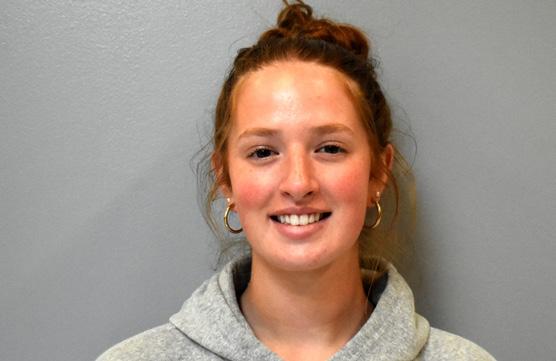
For most of my life, the word “quit” was taboo. We weren’t a family of quitters, and that was that. If I made a commitment, I had to follow through with it.
It was because of this philosophy that I suffered through many years of orchestra and basketball before my parents finally allowed me to stop.
It wasn’t that I was always quitting my obligations in the middle of the season or halfway through rehearsals, either; my parents just didn’t want me jumping from activity to activity.
Despite this, however, I played around five sports and played two instruments throughout my entire childhood, until softball finally stuck.
For the past seven years of my life, I have spent every summer playing in the sweltering heat, every winter
training indoors, every spring playing through the cold rain, and every fall battling the oncoming cold.
For a long time, I didn’t mind the grueling nature of my sport. I loved my team, and I loved the game; however, as time went on, I could no longer justify the 45-minute drives to practice and the core memories I was missing out on.
It hurt every time my friends sent me pictures from a party I wasn’t at or every Halloween I missed because I had a tournament.
seven years, I didn’t spend my week crying and stressing over the next tournament, and I no longer felt like I was missing out on normal teenage activities. My summer finally felt like my summer. Instead of being chained to my softball cleats, I was finally free to have the experience that I always wanted.

“When people force themselves to do something they hate, they aren’t just hurting themselves, they are hurting those around them.”
But quitting seemed impossible: how could I give up something that I had dedicated so much of my life to?
It took two years of contemplating and dragging my feet through practices to finally get the courage to tell my coach I wanted to stop playing. I won’t act like it was easy; leaving my team was one of the hardest things that I have ever had to do.
But this past summer without softball was one of the best that I have ever had. For the first time in
Quitting also allowed me to explore softball in a new, healthier way.
I had done a little coaching in the past, but I was never able to really dedicate much time to it.
Now, because I wasn’t spending my weekends in the summer at tournaments, I was able to spend more time coaching.
I found out that I loved teaching the next generation of softball players, and it allowed me to get volunteer hours. Perhaps, “quitting” doesn’t mean giving up something completely—it just means finding a way to make it work for you.
While I am no longer playing on
a travel team, I can still experience softball through my high school team and the kids I coach.
I’m not saying that people should shirk their responsibilities or quit because they don’t want to work hard.
But no one should have to do something that makes them unhappy just because they “made a commitment.”
Quitting something does not make someone “irresponsible” or “lazy”; in fact, quitting, instead of coasting through and hating whatever activity it is, is incredibly responsible.
When people force themselves to do something they hate, they aren’t just hurting themselves, they are hurting those around them that have to make up for their lack of ambition.
I understand that people make commitments, and that honoring commitments is important.
I also understand that it is important to honor yourself, and know when enough is enough.
While I loved softball, and spent almost half my life playing it, I am glad that I gave it up because it allowed me to make new memories and live a life that I had never gotten to before.
Bart Dabkowski Features Editor
Sincebecoming principal of Maine South, Dr. Antwan Babakhani, who has completed multiple Ironman Triathlons, has found it difficult to find the time to train for long-distance races. That changed this July, when his son suggested he walk a million steps in a month.
“We did the math,” Dr. Babakhani said. “We’ve got 31 days in July. This would be about 33,000 steps a day.”
He accepted the challenge, but it turned out to be more difficult than expected.
“It rocked me pretty hard. I’ve done these Ironman races, and I’ve got to tell you, it was probably harder than any Ironman prep that I’ve done,” Dr. Babakhani said. “I walked six to seven hours every day. I lost two toenails.”
One of the most important things for Dr. Babakhani was staying in a routine.
“To me it’s not about motivation — it’s about discipline,” he said. “I wake up every morning, and if I can be honest with you, 90% of the time, I don’t feel like it. But it’s the discipline, the act of knowing that you need to show up and still do it.”
This discipline kept him on track to reach his goal.
“There were days where it’s like 8 o’clock, and I have 18,000 steps,” Dr. Babakhani said. “Nothing about me wants to do this, but still I would.”
At some point, he began to feel pressure from the number of people cheering him on.
“And then all of a sudden, it became, ‘too many people know — you can’t fail now,’” Dr. Babakhani said. “For whatever reason, I created this narrative in my head that I’m going to let the whole world down if I don’t finish this.”
Finally, after a long, grueling month, he was able to complete the challenge.
“With two days to spare in July, I hit the million mark,” he said. “I was super glad it was over.”
Reflecting on the challenge, Dr. Babakhani doubted that he would do it again.
“Never say never again, but not anytime soon.”

Bart Dabkowski Features Editor
The beginning of a new school year can be a stressful time for many students, especially freshmen facing new challenges and responsibilities. This is why we decided to ask a few senior students to give answers to a few common questions freshmen had about the school year.
“How can you make navigating the school in between classes easier?”
“I know for me, I would always check my schedule before my next class while I was waiting for the passing period so I knew exactly where I was going. My brother also taught me a good trick that the lower number A-wing classes are always closer to Dee Road. Also, stay aware of your surroundings! Don’t go on your phone or mess around with your friends in the hallway. Another hack would be to make your phone background your Infinite Campus schedule. This way, even if the wifi isn’t working, you always know where you are going next.”
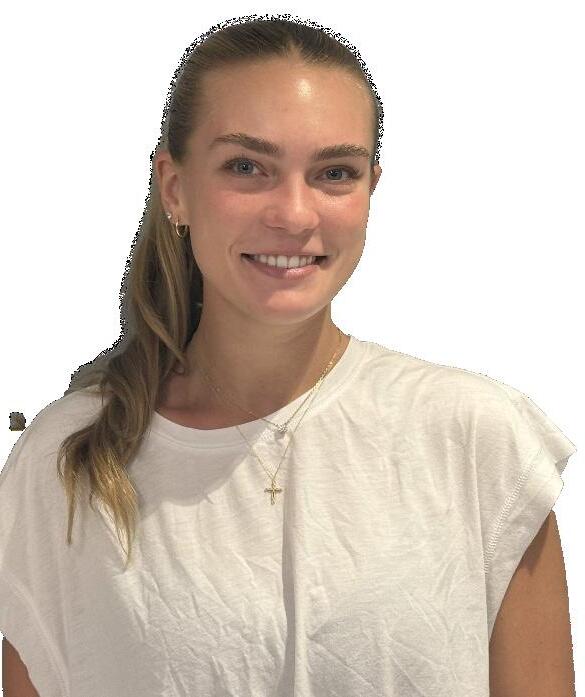
Grace Cioromski SCC President, tennis captain, lacrosse
“How can you deal with a heavy workload of classes and activities?”
““For dealing with a busy schedule I recommend to prioritize one thing at a time and use a planner. I write all of my assignments and activities in my planner to help manage everything and ensure I don’t miss anything. It’s also important to communicate with your teachers if you are having a difficult time in a class and need extra support. Also, take advantage of having a block schedule. Don’t procrastinate on your work and do your homework the night it is assigned.”
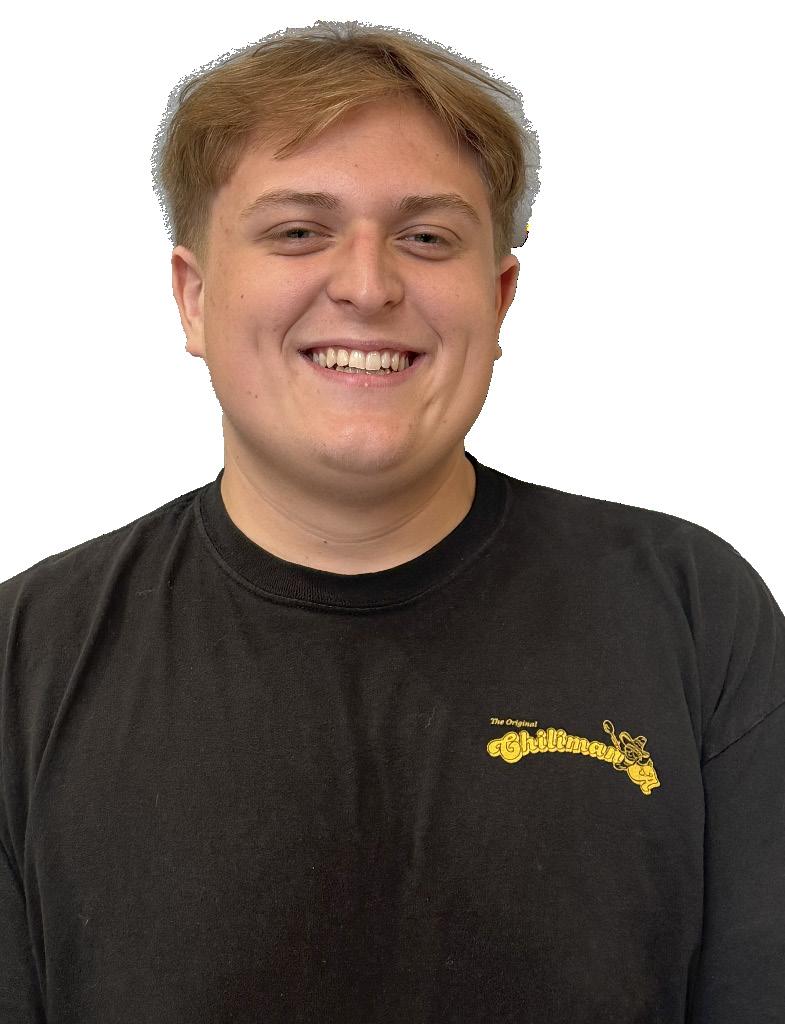
“What can you do to meet new people and make new friends?”
“Meeting new friends in high school is as simple as knowing your interests. When I came to Maine South, I joined the football team because I loved football, wanted to play a sport, and grew up watching games from as early as I can remember. Once I joined, I met so many new people during summer camp and throughout the season, some of whom turned into lifelong friends. It can be terrifying to try something new, like joining a club or participating in sports, but you will certainly be able to find new people and create lasting relationships, just like I did with football. Taking the first step by introducing yourself or connecting outside of school can make all the difference in building friendships that carry throughout high school.”
Ninevah Adam, Sarah Frantz, & Bart Dabkowski Features Writer & Features Editors
BY SONIA LOIZOS

Investment Club is the perfect club for students interested in learning about finance. The club helps students learn about investing in commodities, such as precious metals, energy, and agricultural goods. They use online stock market portfolios to simulate using real world investing techniques. Students in this club also participate in competitions during the year using investing simulations. Similar to other clubs at Maine South, Investment Club leads into a number of career paths. For example, this club can feed into the careers of accountants, financial planners, credit analysts, and more. “It’s a fun and competitive environment where we use our knowledge to participate in three different stock market simulations,” sponsor Ms. Amy Kladis said.

Welcome to anyone with a green thumb, Botany Club is a science-based club for those interested in plants. They primarily clean gardens, grow plants, and make their own ceramic pots. During the year, the club will host at least one fundraiser and participate in the annual Homecoming parade. Botany Club encourages students to be creative and curious about plants. This club helps foster interest in biology, agriculture, environmental science, and the study of plants. “An integral part of the club was learning how to care for specific plants, which I found very helpful in keeping my own plants alive,” senior Lily Arnswald said.

For those who enjoy sports and the medical field, Sports Medicine Club is a special interest club that focuses on the practice of healthcare, treatment, prevention, diagnosis, and rehabilitation of sports and physical activity related injuries. Sports Medicine Club can be the foundation for career paths like an athletic trainer, occupational therapist, biochemist, and much more. Students have the opportunity to learn many skills that they could potentially apply to these careers, such as CPR, first aid, and medical communication. “We are the only club that meets five days a week, from the second week in August to the second week of May,” sponsor Mr. Jerry Bornhoff said.

Maine South has always been home to numerous clubs, many of which can serve as a foundation for a variety of careers. Here are some clubs that are great experiences for future career paths.
Cybersecurity Club is applicable to a variety of tech-based careers. In this club you learn how to use a computer, how to protect it against malware, and many basic problem-solving skills. This club is geared towards those interested in technology, computer engineering, or computer science. “The club involves a lot of problem solving, a lot of fun, and members should come in knowing how a computer works, but if they don’t we will also teach that,” club president Sam Menetti said.

Auto Club prepares students for careers in the automotive field, including manufacturing, designing, repairing, and marketing cars. Some of the careers that fall in this field are mechanics, car sales executives, and automotive technicians. This year, students in Auto Club are building a car. It will compete in the High Mileage Vehicle competition run by Challenge USA. Sponsor Tomas Krause explains “School teams from multiple states compete against each other for efficiency at regional race tracks. Our current vehicles are classified in the Open Stock Supermileage category.”

Women in STEM is a club that encourages academics and STEM careers. STEM stands for science, technology, engineering, and mathematics. Members are encouraged to explore future careers in these fields. Women in STEM hosts opportunities to explore science paths and even gain connections with mentors in specific fields. This club can lead to a multitude of career paths, including software engineers, statisticians, data scientists, and chemists. “It’s a really fun and social club and such a great opportunity to talk with other women with similar interests,” sophomore club member Teniola Sholaji said.


Ms. Cassidy Ginder has joined the math department, teaching Math 1, Math 2 and Foundations of Problem Solving 2. “I love seeing the moment when a student finally ‘gets it’, and applies what they have learned in the classroom elsewhere,” she said. Outside of math class, Ms. Ginder has been enjoying all her new experiences at Maine South, particularly Friday night football games, and is hoping to get more involved in extracurriculars. “I love watching students do what they love and showcase their talents.”

Mr. Stefan Panzilius is teaching Accelerated Chemistry and Chemistry 102 this year. He started teaching when he got a degree in chemistry and a teaching certificate. This is his 29th year teaching in District 207. However, he has mostly taught at Maine West. His first few weeks have been excellent, and he’s very excited about the upcoming year. So far, he’s been enjoying getting to know the different culture of Maine South. “Each of the different buildings have their own personality,” Mr. Panzilius said.

Chip Gray is a new member of the Maine South English Department. He teaches Senior Composition 1 & 2 as well as Sophomore English. After working at Maine West for 31 years, Mr. Gray has made the transition to Maine South this year. Mr. Gray is already loving Maine South and all that it has to offer as a school.“I feel very welcome from Dr. Babakhani and the whole English team,” Mr. Gray said. “I feel beyond lucky to be in a place with such a positive and wonderful dynamic.”
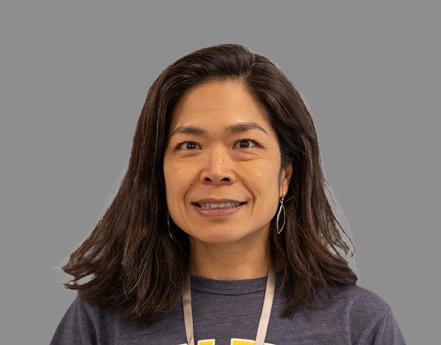
Ms. Jenny Peters is a new World History teacher. She loves history, which was her major. “I also spent a year studying abroad in Japan while in college and have traveled to over 24 different countries. So teaching World History brings these two aspects of my life together,” she said. She’s been teaching in the district since 2002, mostly at Maine West, but now travels between South and West. She is excited to be a part of the Maine South community. “My students are very sweet, eager to learn, and energetic.”

Lee Karpiak is a new Crime Science teacher this year. “I am excited to be teaching it. In the past, I had expressed interest in it but I don’t get to decide that sort of stuff,” Ms. Karpiak said. Ms. Karpiak explained that she feels fortunate to be at Maine South because she has a student of her own who goes here. Reflecting on her first few weeks, Ms. Karpiak stated she has enjoyed working with old coworkers. “I actually had worked here in the past, so I feel fortunate to have already met colleagues,” Ms. Karpiak said.

Ms. Julie Potraz is a newcomer to the Maine South Fine Arts department. She teaches ceramics and design for one period at South. At East, she teaches Art 1. Ms. Potraz has always been an artist and feels grateful to be able to share her love for art with students. She enjoys working with clay and helping students bring their creations to life. “The best part about being a teacher is all the conversations you have during the day and getting to know all the goofy personalities,” Potraz said.
Margo Baum, Julia Coyle, Olivia Crawford, Karin Flensborg, Sarah Frantz, Andrew George, Avery Jacobs, Caitlyn Kim, Erin Pedersen, & Gabi Shaw
Entertainment & Features Staff
Thereare 22 new teachers and administrators joining the Maine South community this year.
These new faculty members are eager to make an impact in the Career Technical Education, English, Fine Arts, Health and Wellness, Math, Science, Social Science, Special Education, Student and Family Services, and World Languages departments.

Megan Kelly is new to the Art department this year, teaching Ceramics and Design 1, Art 2, Photo 2 & 3, and AP Photo. She has always had a passion for art, even from a young age. “I love making and creating art and being around people doing the same,” Ms. Kelly said. Maine South’s well-established art program drew Ms. Kelly to the school. “I was very excited to work in a district that established arts within the community,” Kelly said. “I am very excited to see the work my students create.”

Ms. Chris Rettig is the newest AP Psychology teacher. “It’s a cool, hands-on class where students are really learning about things that interest them,” Ms. Rettig said. While she has been teaching for over 22 years, this is her first year at Maine South, as she had previously taught at Maine West. She now travels between the two schools. Ms. Rettig is looking forward to learning more about the culture of the school compared to West. “It’s been a positive experience so far,” Ms. Rettig said.
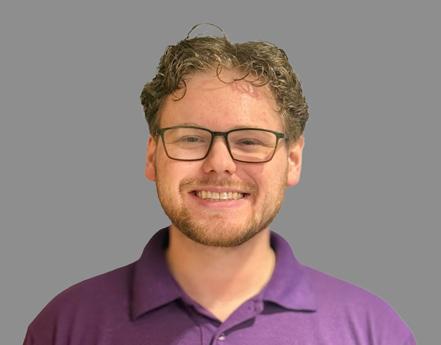
is a new addition to the Maine South fine arts staff, teaching Tech Theatre next semester. During the first semester, he is helping with both the fall play and musical. As an alumus himself, he chose to come to Maine South because his younger sister is involved with the theatre department. “Coming in after [Mr. Patrick Sanchez] who has been running things for 37 years is daunting,” Mr. Lassa said. “The students have been very welcoming and helpful, teaching me how everything runs.”
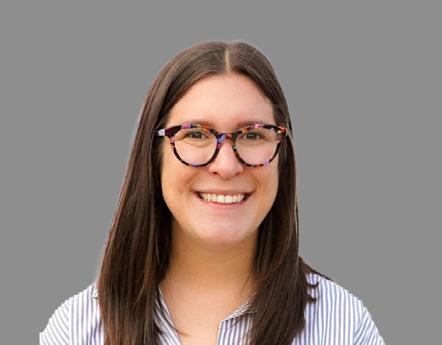
Ms. Jennifer Sheridan is the new Associate Principal for Student and Family Services. Ms. Sheridan began her career as a teacher before becoming an assistant principal at CPS schools. After 6 years at her previous school, she’s very excited about the transition to a bigger team of administrators and getting to know staff and students better. “My last school was way smaller than this,” Ms. Sheridan said. “It’s been really fun to get to know all of the counselors and social workers.”

Ms. Nicole Avadek is a new member of the Maine South English Department, teaching English 1 along with Applied Literacy. Though this is her first full year at South, she is no stranger to District 207. “After my first year of student teaching, I started working at Maine West and have been for the past 28 years,” Ms. Avadek said. She has enjoyed getting to know the students and teachers during these past few weeks. “The teachers are really supportive, and the students bring lots of positive enthusiasm,” she said.

Mr. Lucas Leavenworth has joined the Maine South staff as an assistant principal for Team White. He has been working in public education for 17 years, working as a teacher and an administrator. For the last eight years, he worked at Niles West as an administrator and Director of Mathematics. “I chose Maine South because of the reputation,” Mr. Leavenworth said. “The school is so well thought of, the programs have always been well acclaimed, and I really wanted to serve families.”

Mr. Romelle Taylor is a new teacher in the Health and Wellness department, teaching 11th and 12th-grade Fitness and Sports, and 9th grade P.E. “The opportunity to be a part of such a wonderful school community with such a strong legacy of excellence is one I truly appreciate,” Mr. Taylor said. He enjoys his job because of the students and his love for sports. “I spent my youth being very active in sports…I have always had a passion for working with youth. This was the perfect career for me.”
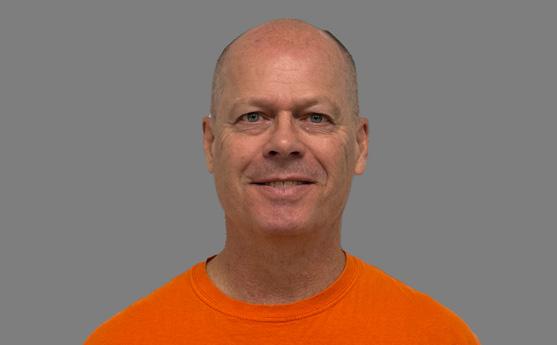
Mr. David Baysinger is the newest teacher of cybersecurity and programming at Maine South. He began in the corporate world but realized, after working in that field for about a decade, he desired more of an interactive job. “I liked helping kids,” Baysinger said. “I was given the opportunity to help kids that would come straight out of college develop in the company, which made me think I might want to become a teacher.” This is Mr. Baysinger’s first and last year at South, as he will retire at the end of this school year.
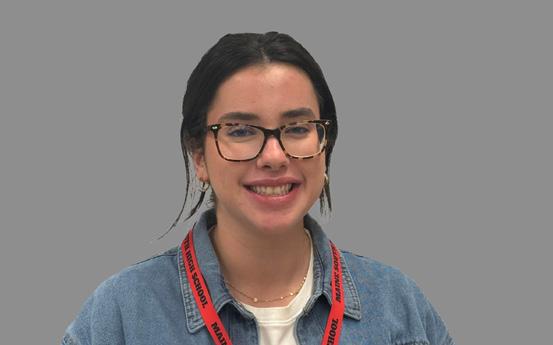
Ms. Sophie Lichtenstein teaches four periods of Culinary 1 and one period of Interpersonal Relations. It’s her first year teaching, and she chose Maine South because of its overwhelming school spirit and positive environment. She has always had a love for culinary arts. “They are a productive break in students’ day where they can learn valuable skills in a supportive environment,” Lichtenstein said. She is excited to continue building relationships with her students.

Mr. Chris Trella is a fourth Generation Des Plaines resident, and teaches Health and Male Total Body Conditioning. Mr. Trella is a traveling teacher between South and West. “I enjoy the culture that I’m experiencing here; you all are very hardworking, yet humble in a good way…” Mr. Trella said. So far he is enjoying Maine South and his new role here. “It brings me joy to show students healthy habits...I like to help students who want to get bigger, faster, and stronger.”
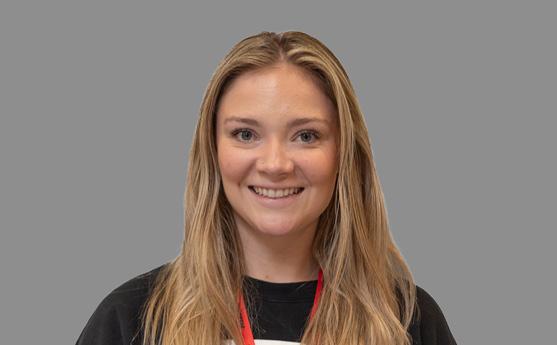
Ms. Mikaela Burke teaches in the Special Education department and is co-teaching classes in English and Biology. Originally, Ms. Burke wanted to be a writer, hence becoming an English teacher, and was always interested in biology. “I’m there to make sure all the students have the materials they need to be successful,” Ms. Burke said. She also is a Maine South alumna. “It’s really cool being co-workers with [former teachers]. It feels weird, but they’re all so supportive.” She has already helped start a new club, Hawks for Wishes.

Mr. Angel Macias is a new math teacher at Maine South, teaching Math 3 and Math 2. Originally, Mr. Macias didn’t want to be a teacher. “I wanted to go into computer science, but then when I got into college, I realized that I didn’t want to go into the industry.” He decided to go back to what he enjoys, which is helping others. Mr. Macias notes how he is still adjusting to his new role at South, but is enjoying it. “I’m excited to go to all these special events here...and see the school spirit.”
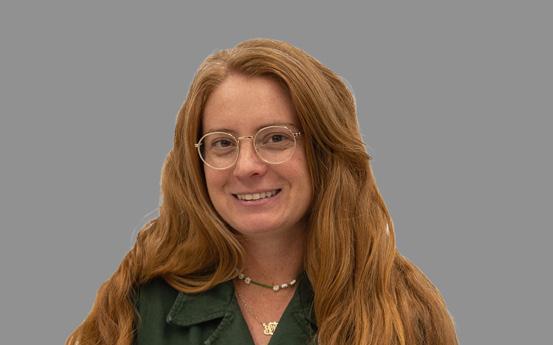
Ms. Sydney Walters is a new fine arts teacher at Maine South, teaching Photography, Photo 1, and Ceramics. Ms. Walters studied photography in college, with a passion for the entire process. She also enjoys ceramics because of its hands-on aspects. “I’m really excited to get away from computers and do more hands-on work,” she said, noting Maine South’s dark room facilities and ceramics lab. She has loved how invested her students have been in their art.
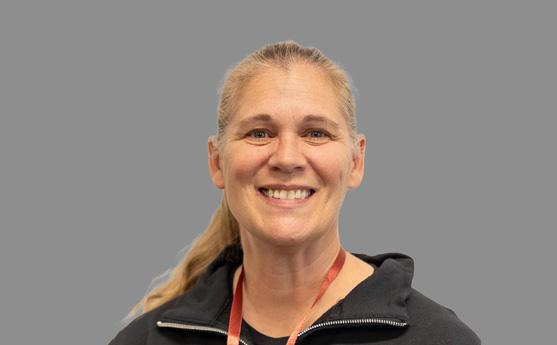
Ms. Jen Ellberg has a degree in Forestry and Environmental Education, and teaches Earth and Environmental Science. She teaches at both Maine South and Maine West. “The students and teachers have been wonderful, very supportive, and very helpful showing me where things are,” she said. “I’m most excited about getting to learn the two schools and what the schools have to offer, and honestly, making sure that I’m organized enough to be able to make sure I have everything I need for both schools.”
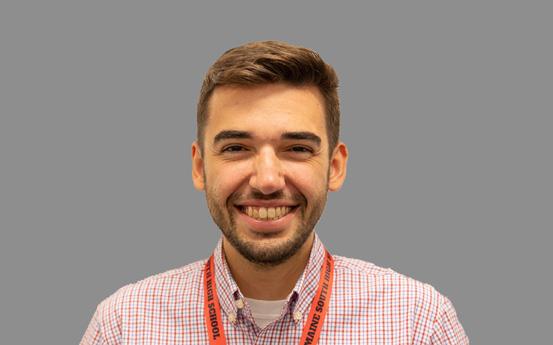
Mr. Quinn MacKenzie is joining Maine South’s science department, teaching Physics 102 and Chemistry 102. “I kind of always knew that I wanted to be a teacher,” Mr. MacKenzie said, since both of his parents were in education, and science had always been an interest for him. He explained that the school’s values and community stood out to him, which made him want to come here. “I got to meet some of the teachers here,” Mr. MacKenzie said. “It’s a wonderful team to work with.”

Mr. Mark Zambrano is the newest counselor on Team Black. He decided to become a counselor because he loves supporting, connecting with, and helping students find their direction. His family greatly valued education, which has helped his passion for it develop. “I really admire how much the school values academics while also offering so many opportunities for students to get involved...” He is also a boys’ soccer coach and is excited to attend upcoming athletic events and theater productions.
Antonia
Argionis
Entertainment Writer
“Trap,” this year’s fall play, was one of the first fully studentdirected plays the school has put on. The horror play was performed on Sept. 18 and 19.
“‘Trap’ is different because the show interacts with the audience,” student director Jayden Bublitz said. “The audience is on stage during the show.”
This allowed the audience to have a closer look at the play and view the show from an entirely new lens. A black box has no permanent stage. The performance area is at floor level. The walls and the floor are also painted black allowing the actors to stand out.
This also meant very limited seating for the show. Audience members were able to view the show from three different sides.
“It’s a very unique experience with audience interaction,” senior student director Peter Sagmeister said. “It plays around with what exactly makes a play scary and why it’s effective. It’ll leave you guessing.”
“Trap” takes place in a high school similar to our own. The high school put on a play just like this one. However, the audience members seemed to disappear after viewing
said play. Following various stories, the play immerses the audience in the story to discover what truly happened to the missing people.
Horror is a completely new genre that deviates from many of Maine South’s past productions.
“It’s a horror play, which is rare in general, but especially at Maine South,” Sagmeister said. “I don’t think Maine South has ever done anything like it before.”
Jayden Bublitz and Peter Sagmeister were responsible for directing the show. The daunting task of directing a play delivers a hefty workload.
“It’s a lot of work,” Sagmeister said. “Jayden and I started working on this play back in May, and there was still so much to do basically every day. It’s just a lot of planning: planning props, costumes, the set, lights, sound effects, cast schedules, and Saturday rehearsals. It’s very easy to get overwhelmed by just how much needs to happen.”
Both student directors learned valuable lessons and skills throughout their time working on “Trap.”
“Being in band, choir, and theatre has given me skills I will use for the rest of my life, such as speaking in front of people or using a drill,” Bublitz said. “It’s also given me a chance to reflect on myself and who
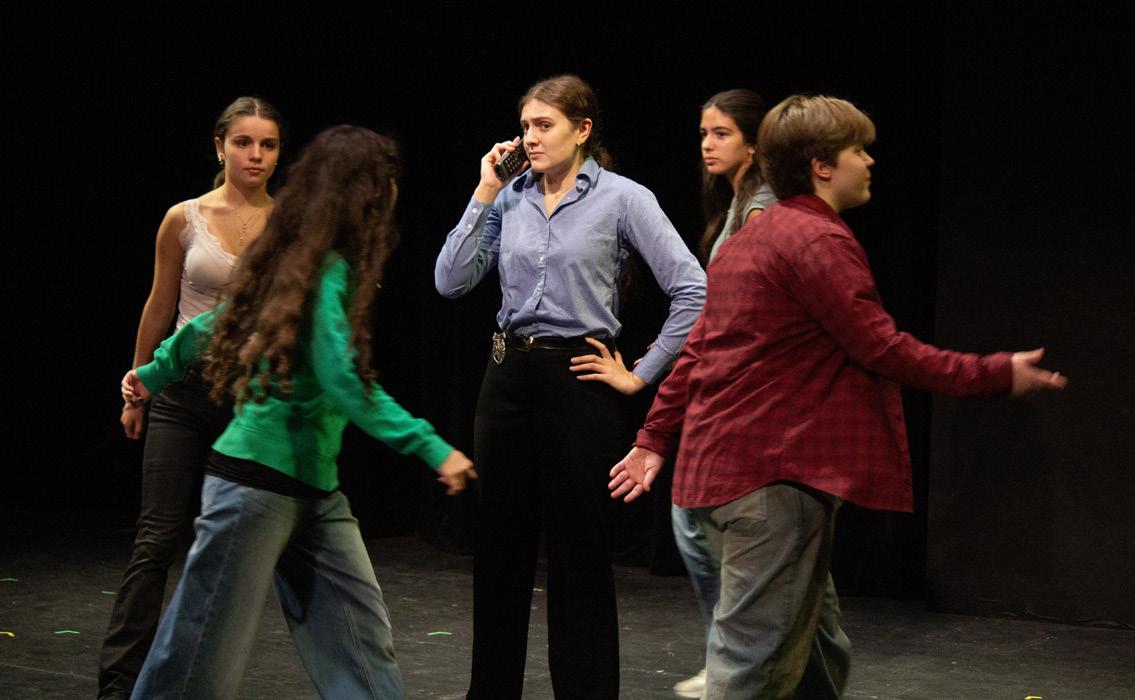
I want to be as a person.”
Everyone involved in the play formed a community while putting on the show. The student directors specifically put an emphasis on this.
“To be a student director, you need to have a lot of trust in the people you work with and hope that they trust you too,” Sagmeister said.
Theatre is a passion for many of the people involved with the play, and the student directors are elated to be the ones delivering that experience.
“I love performing—it’s probably one of my favorite things to do,” Sagmeister said. “It makes me feel
free, and gives me a glimpse into what it’s like to be somebody else. Being a director is just like making that experience happen for my cast and the audience, and that’s very fulfilling to me.”
It was a learning curve for the directors on how to manage being in charge of their peers.
“I had to learn how to work with new people and how to tell people what I need them to do,” Bublitz said, “It’s definitely made harder by the fact that I am almost the same age as everyone in the show or working on the show.”
Isabella Fayhee
Entertainment Writer

Notall teen romantic dramas are created equal. In Jenny Han’s “The Summer I Turned Pretty,” she entices audiences with romantic summertime scenes and tangled romantic relationships, but also addresses more serious subjects such as depression, substance abuse, and grief. Despite its popularity, the program falls short of its full potential due to its erratic storytelling and frustrating character decisions.
The story follows Belly Conklin (Lola Tung), a young girl who has spent every summer at a beach house with two brothers, Conrad (Christopher Briney) and Jeremiah Fisher (Gavin Casalegno). Belly has loved Conrad since she could

remember, but he has always treated her like a little sister. But one summer, everything changed. Suddenly, Conrad was more than a brother, and Jeremiah had also taken an interest. She is faced with an ultimatum: which brother should she choose?
The show leans on the well-worn brothers’ love triangle trope. What’s interesting about this particular show is that it reaches beyond that.
It explores the relationship between the mothers, Laurel and Susannah, along with incorporating characters like Taylor (Rain Spencer) Belly’s best friend, and Steven (Sean Kaufman) Belly’s older brother. Han’s ability to take a teenage love story and create such complex characters and a captivating storyline is evident.
Yet, the adaptation struggles where the novel excels. Throughout the books, you can peek into Belly’s personal thoughts and introspection. We see her insecurities and the way she compares herself to Taylor. We also see her grow over time and figure out who she really is.
In the show, Belly’s character is less relatable and more insufferable. Belly’s frequent jumps between brothers are not only highly unrealistic but also immature. It’s essentially three seasons of watching her tear apart a family that already has challenges of its own. It’s truly appalling that the brothers never
once considered leaving her to save their brotherhood. Instead, we see fights and a long-lasting resentment between the Fisher brothers.
Additionally, the writers seem to write their storylines in order to appease their viewers. For example, we see the writers make their characters perform out-of-the-norm actions to sway the viewers, especially in season three. It seems to ask the rhetorical question, “Look what he did, no way you could be on his side now, right?”
Perhaps it would be more effective to make both brothers compelling choices, to ensure we experience Belly’s struggle to decide. It seems that the writers put the comfort of the audience before presenting a more “straightforward” and difficult story.
In the end, while the show succeeds as a breezy summer drama, it sacrifices depth and honesty in favor of easy appeal.
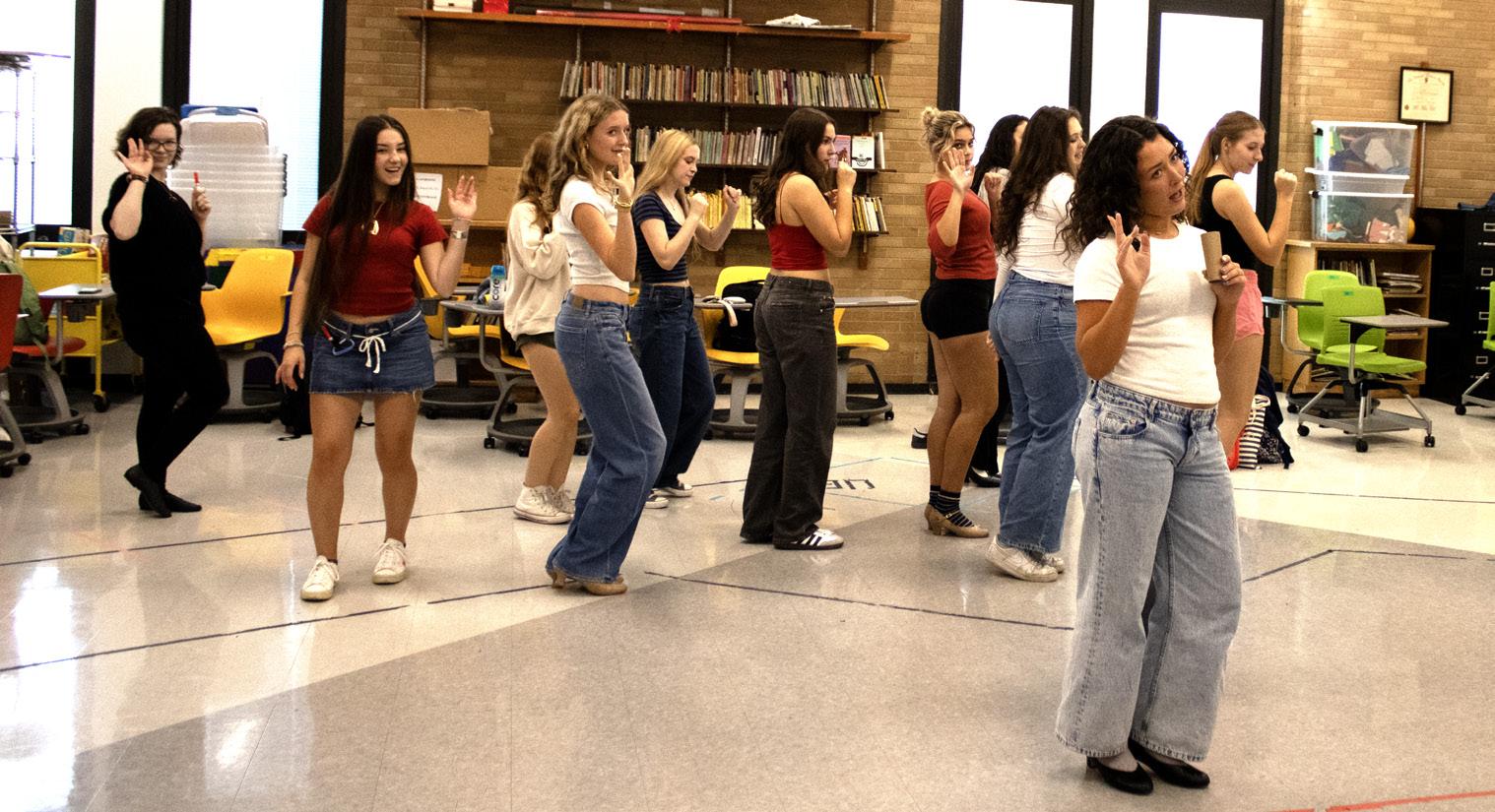
‘Six’
Arya Cham & Andrew George Entertainment Writer and Editor
This fall marks a historic moment for Maine South Theatre as the school presents its first-ever fall musical: “Six.”
“Every year, our Advanced Theatre class has the opportunity to pitch a season of theater for Maine South for the coming year, and part of it was that [“Six”] was highly suggested by a lot of students, so there was a lot of excitement around it,” musical director, Mr. Joseph Fitzpatrick said. With this in mind, “Six” was chosen to be this year’s first-ever fall musical.
The high-energy, Tony Award-winning show tells the stories of Henry VIII’s six wives, blending history with modern pop concert flair.
Because two fall shows are being prepared concurrently, every single date has to be planned and met accordingly. There isn’t a lot of wiggle room with the timeline, so the cast and crew have to work really hard to follow it.
“The biggest thing is timelines,” Mr. Fitzpatrick said. “Making sure that one show has enough time to rehearse and get teched, and then the other show that’s getting built can get put away for a little bit and then brought back out in time and spaces get turned over.”
Another unique aspect of the show is that the pit orchestra is led by the pianist, rather than the conductor. There are also only four members who are on the stage, so they have to put in lots of effort to make sure the music is perfect for the actors.
“[The show] cannot stop for any little moment that happens on stage,” Mr. Fitzpatrick explained. “The actors and the pit have to be perfectly in sync in a way that in most shows you don’t have to.”
The pit has click tracks, constant metronomes, in their ears to assist in this.
Directing this show has also been a new and unique experience for Mr. Fitzpatrick.
“I’m not building the world of the play the same way I typically would,” he said. “Everything is very presentational and breaks the fourth wall. It’s also a
lot more choreography and vocals than anything.”
The show has also been an exciting time for the cast.
“It’s truly amazing,” said senior Ola Nawrocki, who portrays Catherine of Aragon. “The cast is extremely talented, and I’m so grateful to be a part of the production. Getting to know all the people involved with the show and learning all the music has been one of the most exciting parts.”
Not only has the show itself been a exciting time for her, but being able to portray Catherine of Aragon is especially exhilarating.
“She’s been one of my favorite characters ever since I saw ‘Six’ on Broadway a couple years ago,” Nawrocki said. “I’m very excited to portray her.”
Karin Flensborg, Andrew George, & Gabi Shaw
Entertainment Editors
Kilwins
116 S Prospect Av. Park Ridge, IL 60068

Uptown’s latest franchise, Kilwins, is known for its premium ice cream, fudge, and chocolates. The Park Ridge location may appear uninviting at first, as there is no outdoor seating area. However, inside, there is a large display of various sweet treats. The establishment is clean with a very welcoming staff. Walking in, a sweet aroma surrounds you as you begin to take in all the smells from the shop.

Junior Emma Erickson takes on the role of Catherine Parr, Henry’s last wife.
“She’s significant to me because she was the sixth wife who ended the competition between the wives when she found true love,” Erickson said. “She stands as a rock in the show. This character is very grounded, and I’m very proud to portray her.”
The cast agrees that “Six” is a unique experience.
“The show is less like a traditional musical and more like a pop concert,” Erickson said. “It’s so different from what we usually put on stage — the songs, the staging, the audience interaction. I think people will leave feeling energized.”
This show differs from many past Maine South productions as it has two casts.
The White cast is the understudy cast with one show on Thursday, Oct. 2 at 7:30. The Red cast has three shows on Friday Oct. 3 and Saturday Oct. 4 at 7:30, and Sunday Oct. 5 at 2:00. Tickets are $15 cash only and can be purchased at the door.
“[‘Six’] would be impossible to bore you with — it is literally one of the most fun nights out at a theater that you can have,” Mr. Fitzpatrick said. “You’re going to be up on your feet, wanting to dance, wanting to clap, wanting to sing along.
Different from other ice cream shops, Kilwins is priced based on weight, instead of just size. One downside about this system is that the price of treats can be unclear to customers.
Kilwins carries 28 different flavors of ice cream, so there is bound to be something for everyone.
The Park Ridge named flavor, “Hodges Park Mud” was a mix of creamy vanilla ice cream, rich chocolate chips, and caramel sauce. The hint of
salt in the caramel perfectly balances the sweetness of the vanilla base and the richness of the chocolate chips.
Although the selection for fudge is much more limited, with six options, that doesn’t mean there is a drop in the quality or taste. The chocolate fudge is smooth and has a melt-in-your-mouth texture. The fudge really does taste like a premium chocolate offering. However, the plain chocolate fudge felt like something was missing, which is the main reason why the more unique flavors of fudge are more popular.
Overall, the pleasant atmosphere and tasty treats make Kilwins an attractive spot satisfy your sweet tooth. However, the high prices for smaller

James Biagi Sports Editor
The boys’ golf team, coached by Mr. Adam Kwiatkoski, has had a slow start to the season. Due to bad weather, two of the three days of tryouts were cancelled. After only one day of tryouts, Coach Kwiatkoski had to select eight players to be on the varsity roster and play in the first match.
Now that the team has had the opportunity to practice, the coaches have set the starting six and have a better understanding of how to improve the team.
“We’ve been steadily improving and giving a lot of people a chance to play,” Coach Kwiatkoski said. “We have established who our top players are, and now we’re just trying to get good scores to go with them so that we can prepare for the rest of the season.”
The team’s focus this fall is to be consistent by shooting solid as a team. If they are able to stay consistent early in the season, it will benefit them in the long run.
“We all need to get consistent in shooting [low] scores,” senior Peter Corthinos said. “There is no room for mistakes; we have to come out ready to play.”
The team has been working hard on individual skills to help improve their personal game.
“I want to get better at putting,” Cor thinos said. “That’s the area I need to work on, and once I do that, I think I’ll be good.”
The Hawks face the challenge of compet ing in one of the toughest conferences in the state, which includes reigning state champion, New Trier.
Maine South was currently ranked 96th in the state at press time.
The players are motivated by individual im provement and the opportunity to par ticipate in more tourna ments.
“There are some teams that are going to be difficult for us to beat, and most of them we have played already, so we have that behind us,” Coach Kwiatkoski said. “It’s an individual sport, so I think everybody has their own goal on what they can shoot, but also represent the team well.”
Junior Joey Jankovic approaches the 1st hole’s green at the Wilmette Golf Club. The match against Evanston was eventually rained out.

Scarlett Shembeda and Riley Story Sports Writer & Sports Editor
Last year, the girls’ flag football team placed top five in the state. Over the course of their season, the team went 24-3. This season, with a record of 16-3 at press time, they continue to face tough opponents throughout conference games.
“This year, we want to continue our wins and keep our competitive standing in the state rankings,” senior running back Sarah Cull said. “Last year, we fell short in the playoffs. This year, we are hoping to make it further.”

With new rules, expectations, and plays, the team has been working hard to adjust, and so far, it is paying off. The team is currently ranked third in Illinois.
This year, the Illinois High School Association (IHSA) implemented a new rule that affects how defensive competitors play. The “rusher” can sack the quarterback to stop a pass from occurring. Last year, the quarterback had seven yards to make the pass before the rushers could get to them; this year, the quarterback has one yard.
“This rule will make the quarterback’s job much harder with less than half the time to throw the ball as last season,” Coach Carlos Panizo said.
Their schedule contains tough competition against Whitney Young, Glenbrook South, and New Trier, making it important for the team to stay motivated.
“This year, our schedule is probably one of the toughest schedules in the state, so we may see a few more losses this year, but I think playing the best teams will only make us stronger in the end,” Coach Panizo said.
Because of limited field availability, the girls have a challenging practice schedule.
“We have morning practice every day from 6:00 a.m.-7:15 a.m.,” Cull said.
Although morning practices are tough, there have been a lot of benefits for the team.
“Being able to rest after school and get my homework done is really beneficial” junior
Christina Pissios said. “I feel a lot more productive throughout the day.”
During these practices, captains take on many responsibilities that have helped improve team chemistry.
“I think it’s important to develop leaders amongst the team and give them ownership in their own season,” Coach Panizo said. “I rely heavily on my captains for practice and game plans.”
This season, the team has a lot of new talent, with 44 total players. With all these athletes, the coaches’ biggest goal is to make a deep run in the IHSA State Playoffs this October.
“We have nine new players on varsity, including two sophomores and two freshmen,” Coach Panizo said. “All of the new players are very good, but the challenge comes from figuring out the right chemistry and lineups.”
To help them with this are their new wristbands, used for communication on what plays should be done when.
“Play cards shave off a lot of time in the huddle, which takes away being called for a play clock violations,” junior receiver Emerson De La Cruz said.
This has been crucial for new players since they are not as familiar with plays as returning players.
“There are some game wrinkles that we used sparingly last season with success that I would like to incorporate more,” Coach Panizo said.
In addition to the drive to win, the coaches are looking for good sportsmanship, respect, and overall positivity throughout the game.
“Trying to stay positive is very important because plays are quick,” Cull said. “Throughout the game, we have to reset the framework and keep a positive mentality even if we aren’t doing well.”
Positivity has been a key factor to the team’s morale and success.
“It’s helped improve our team chemistry so much,” senior receiver Amelia Fernandez said.
The team will look to rely on this togetherness and positivity as they progress through the season.
“All of the pieces are coming together early and it is looking very strong.” Fernandez said.
John Dobrinska & Sydney Hollingsworth
Sports Writer & Sports Editor
The boys’ soccer team is off to a hot start this season. At press time, the Hawks are 9-2-1, and are ranked 11th in the state of Illinois. With such a great start, hopes are very high for this year’s soccer team.
The season began with a game on the road against Fremd. With solid defense and an impressive goal from senior captain Bartek Galimski, they were able to shut out Fremd, 2-0.
“[Senior] Cooper Larson assisted my goal, and it felt great when I scored because we have been working hard on those types of shots, and it finally went in,” Galimski said.
In the next game, the Hawks showed a lot of perseverance at home against Leyden. After regulation, the score was tied at 1-1. After a total of nine penalty shots, sophomore Matthew Becker scored the winning penalty kick in his first varsity start.
“The penalty shootout was very intense,” senior captain Wyatt Kelleher said. “We had just tied the game at the last second, so we were very thrilled to be in the shootout in the first place. We practiced our penalty kicks almost every day in practice, so we had a strong idea of what to do when it was our turn to shoot.”
After these first two games, the soccer team was able to string together two more wins to give them a four-game win streak. The streak ended against Bolingbrook with a 2-1 loss.
“It is really important for us to get together after a loss and talk about what went well and what went poorly,” Galimski said. “This helps us figure out what we need to practice and what is already
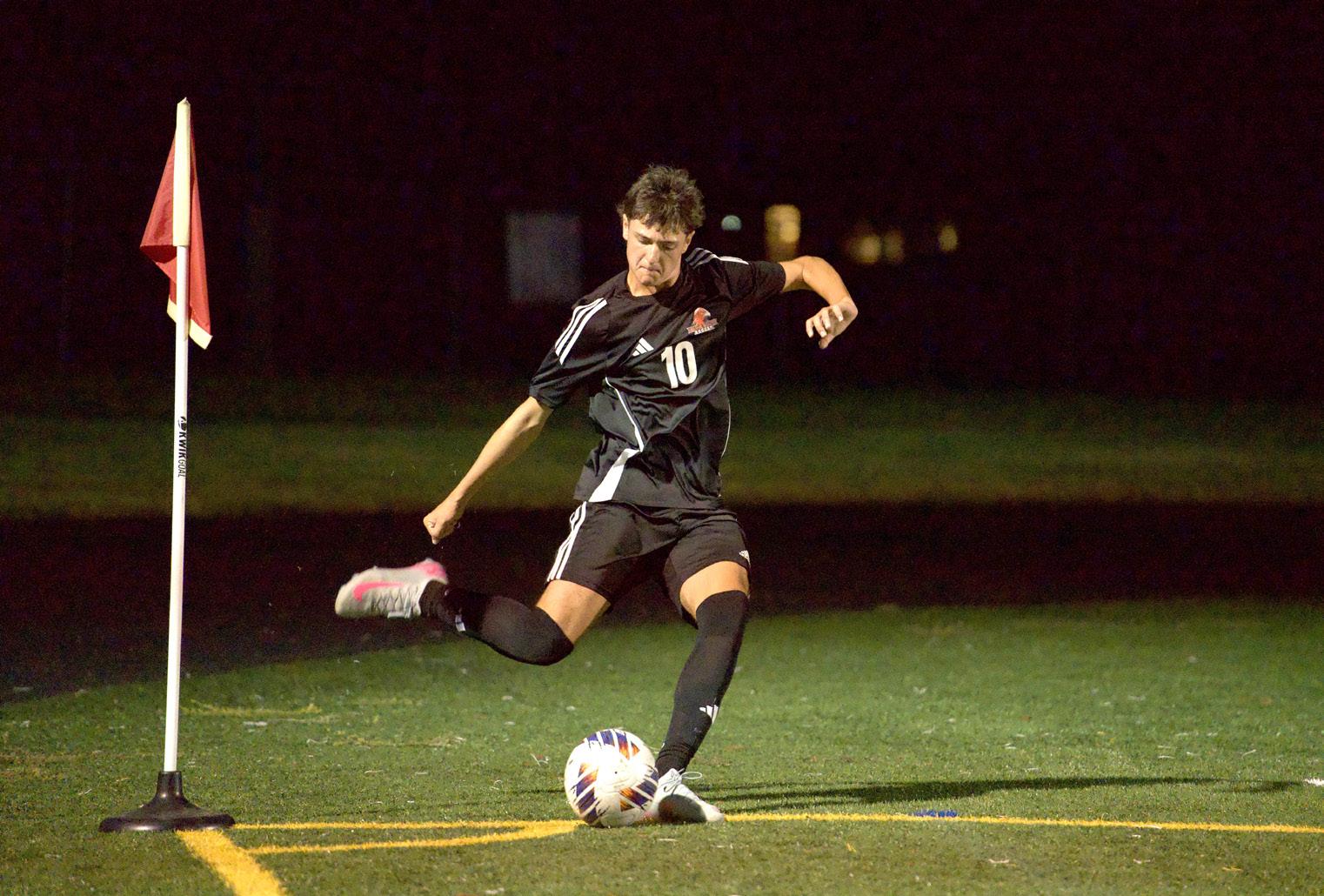
working.”
In order to ensure success, the team has to be close knit. Without team chemistry, their performance on the field worsens. With many returning players, the team has been able to grow their connection each year.
“We have been having a lot of fun this year,” senior captain Oscar Podraza said. “Everyone jokes with each other, and I think that really brings the team together.”
While the season is still just getting started, the team is always looking ahead to the post season. Last year the team brought home a Bodyarmor tournament trophy after finishing first in the largest
single-site high school soccer event in the world.
This year, the team fell short in the finals against East Eligin. Despite this, the team hopes to make it all the way to State.
“We want to play in the last week of the season,” Kelleher said. “This means making it to Super Sectionals, and ideally the State finals, which would require a strong run of good wins against consistently tough opponents.”
The team’s next home game is Oct. 4, against Glenbrook North, which is a CSL Conference game for the Hawks.
“We feed off the energy of the crowd and love when other students come watch,” Galimski said.
Elizabeth Wasielewski Sports Writer
Three weeks into the season, the girls’ swim team is already making waves. With five meets complete, at press time, the athletes are training at a high level while building strong bonds with one another.
Much of the team’s early success this season has stemmed from their mindset. Instead of focusing on their opponents, the swimmers are turning inward.
“They are able to push each other to their limits,” Coach Donald Kura said. “We can’t control what other teams do. All you can really do is focus on your own team and what you are doing to prepare to your best ability.”
After finishing 12th at State last year, apart from the swimmers who graduated in May, nearly all the athletes who scored points at Sectionals and State have returned for this season. This expectation has given the team both motivation and pressure,

swimmer, is looking forward to the upcoming meets.
“My favorite event is probably the 4x4 relay because it is towards the end of the meet and everyone is cheering,” Przekota said.
Traditions like “big sister, little sister” also strengthen team spirit, pairing upperclassmen with underclassmen for support and encouragement during meets.
Players health is a top priority for the team during the season and post season. They work on building muscle to improve their speed and stay physically fit.
but they have been putting in the work and are handling it well.
“If you swim fast at practice, you don’t know anything other than to swim fast at a meet,” Kura said.
Senior Maeve Przekota, a returning varsity
“It is important that we warm up at the beginning and leave time to cool down,” Coach Kura said. “Three mornings a week, we come in and we lift weights for about an hour.”
The main goal for the team is to progress through the post-season meets.
“Our main goal is to perform at the post-season meets and place in the top five,” Przekota said.


Katie Johnston Production Editor
The girls’ tennis team has been off to a very strong start after their win in the Edwardsville Tournament at the beginning of September.
“Edwardsville was great — it was the first time we ever won that tournament,” Coach Gerald Smith said. “I was very proud of how we played under those conditions and how every player rallied for each other.”
The team hopes to keep up this winning energy through the rest of the season. With the help from senior leadership, the environment is consistently positive and uplifting.
“I love how fun the environment is at practice and it always makes it exciting to play after school,” senior captain Molly Mizwicki said.
Though the season is short, there are matches nearly three times a week. This means that there is only time for one or two practices per week.
“When we practice, it is always with the purpose to improve from match to
match,” senior captain Lauren Geier said.
Improvement is the overarching theme for the tennis team this year. It isn’t just improvement as an individual player — it is improvement as a team.
Tennis can be seen as a very individual sport; however, for Maine South’s team it is very much the opposite.
“I always hope to improve every day, not only in tennis, but also the community that we are forming,” Coach Smith said.
With the diversity of ages on the team, it may seem challenging to make sure everyone is included, but the captains make sure that every voice on the team is heard.
“It’s our job to be welcoming to all the new players, but also continuing what former captains built,” senior captain Ella Raseta said.
This year, the team added another coach to the lineup: Ms. Susie Costantini. With the addition, communication and support has significantly increased.
“We want to be there for all our players, both physically and mentally, so
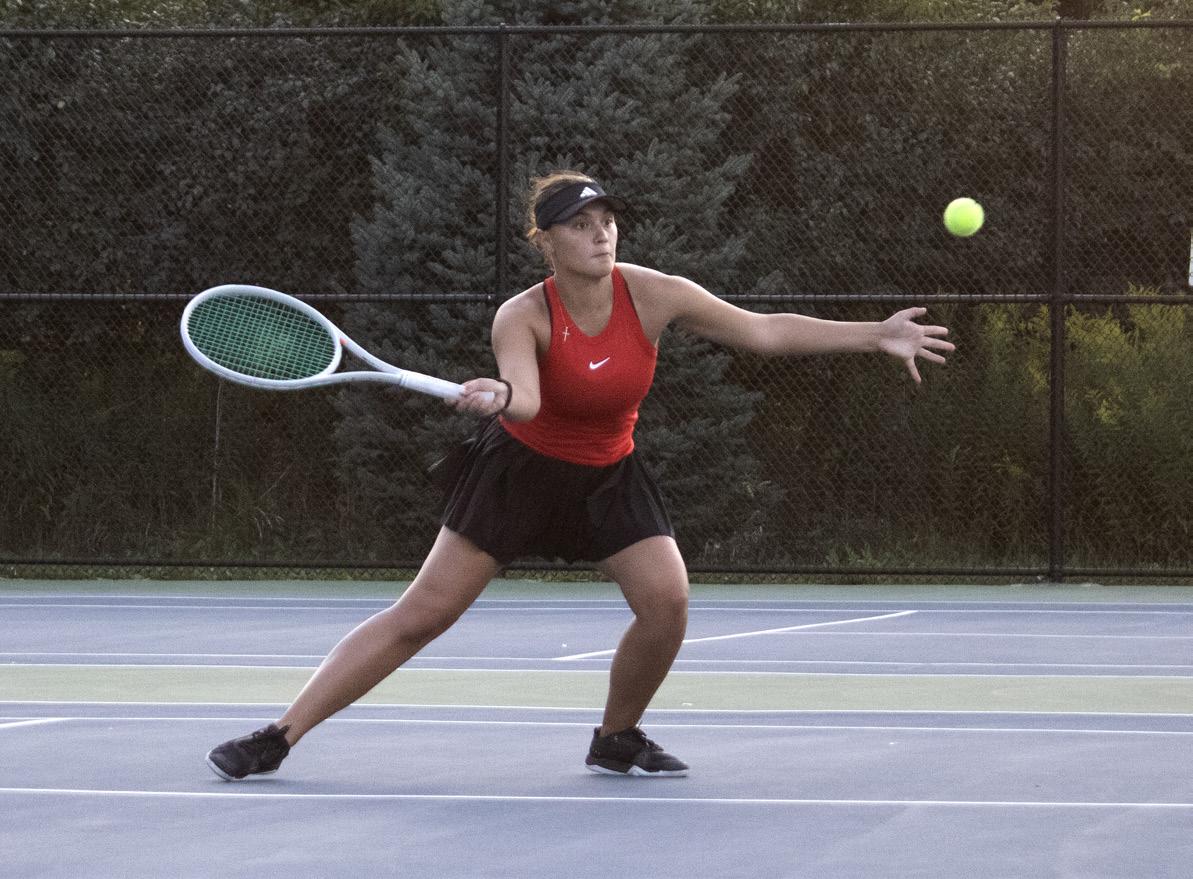
having another coach has been essential,” Coach Smith said.
Over the summer, the girls worked to improve their game and prepare for a quick start to the season. This preparation was done at the tennis camp or individually outside of Maine South sanctioned activities.
“We all work really hard over the summer, and it shows when we come out swinging during the first matches,” said Geier.
Sydney Hollingsworth Sports Editor
The girls' golf team is off to a strong start this season with many athletes shooting new personal bests. Under the new coaching of Mrs. Lindsay Pisano and Mrs. Barbara Giannosa, the girls are thriving.
Coach Pisano has been with the team for three years as a JV coach and is now the new varsity coach. With experience under her belt, the transition has been seamless.
“I am very excited to be here and have this new opportunity,” Coach Pisano said.
Last year, the team had a very strong senior class. With only three returning varsity members this year, the team has a lot of new talent. Seniors like Alexis Vengazo and Annabelle Izzi are leading the team through this transition.
“I’m so proud of my upperclassman for making the new players feel like they are part of the team and helping
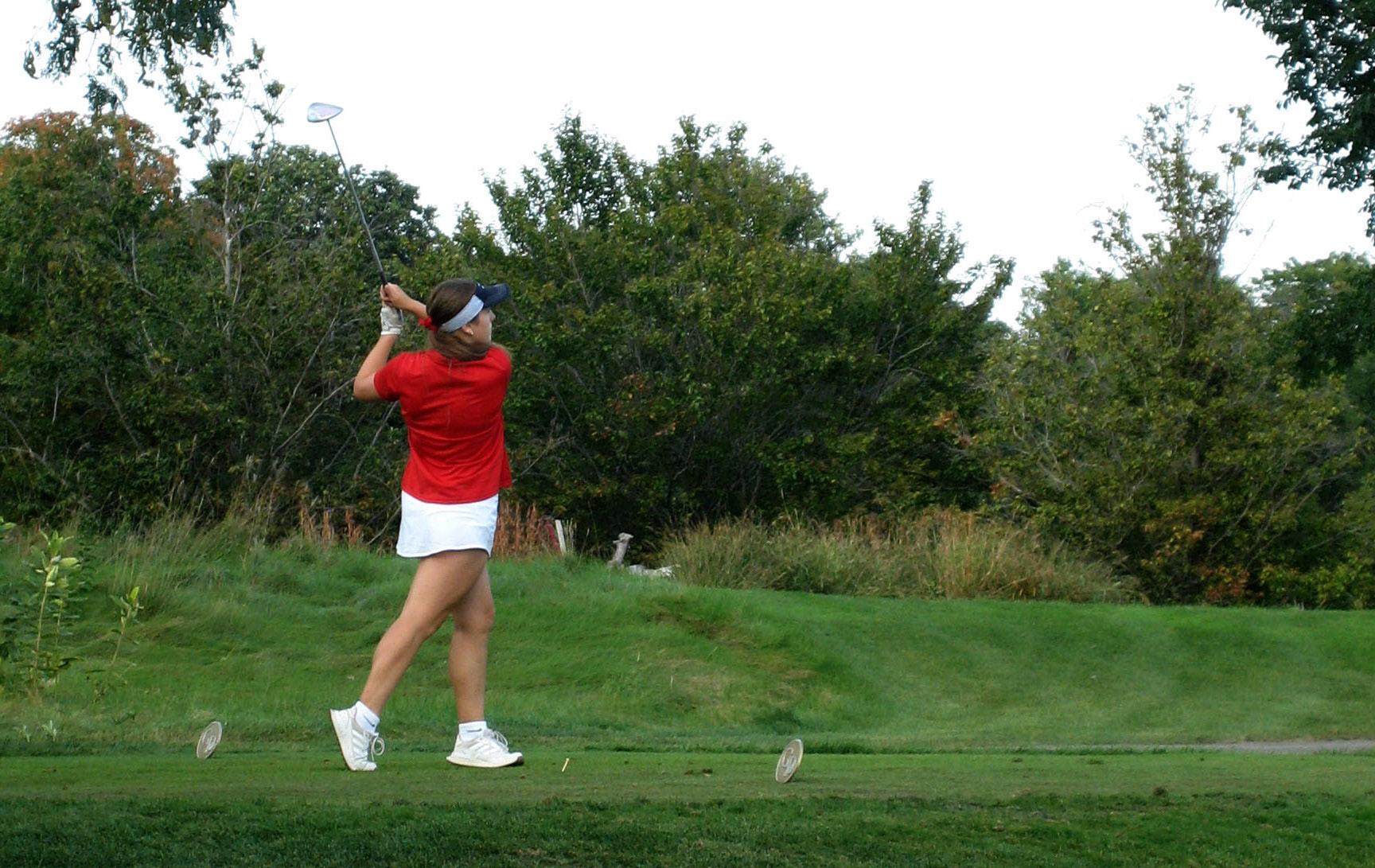
them grow with their game,” Coach Pisano said.
This season, the girls are trying to work on their mindsets. To help them with this, the team met with sports psychologist Demi Agaiby to help strengthen their mental game.
“It was really nice to meet with someone who can help fine-tune my mental space," Vengazo said. “She gave such great advice, and I already see a change in myself and the team.”
With the team's new mental outlook strategies, they are working together to
support each other in the highs and lows of the game.
Along with mental game practice, the girls are spending hours at the range, working through swing changes and course management skills.
“We try to make sure that every practice has a purpose in order to succeed,” senior Annabelle Izzi said.
Although golf is a pretty individual sport, the team has great chemistry on and off the course. It is important for the girls to feel comfortable with each other so that they can all help each other improve.
“Our team is really close this year,” Izzi said. “We have all really embraced this season and have worked together to help each other reach our goals.”
Last year, the girls had four sectional qualifiers. This year, they are hoping to meet and exceed this number.
“Sectionals and Regionals were such a great experience last year, and I hope to take some of that experience into this upcoming postseason," Vengazo said.